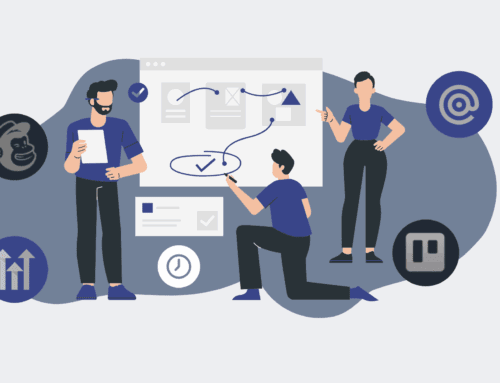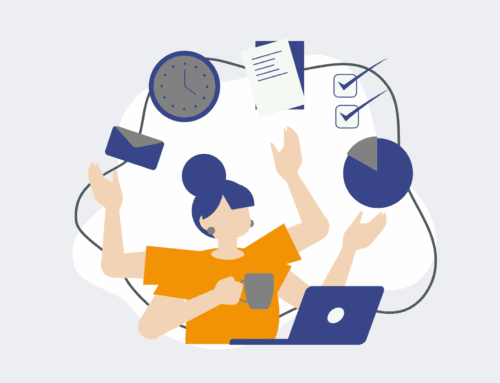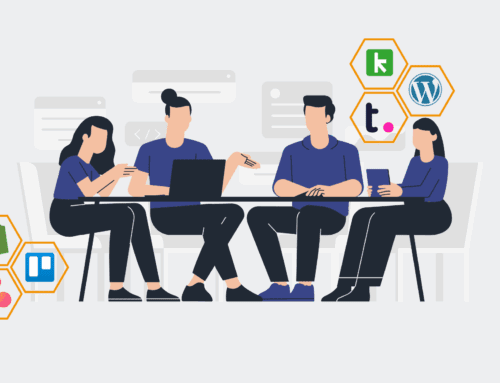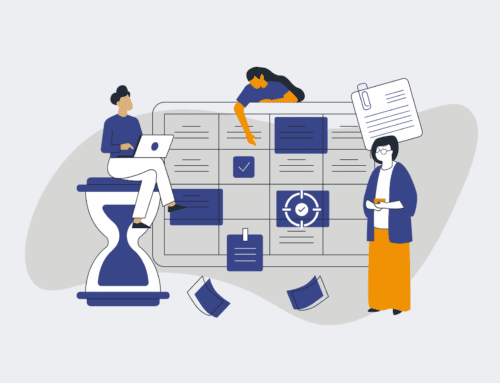9 Practical Applications of AI Transforming HR and Recruiting Today
The landscape of HR and recruiting is undergoing a seismic shift, and the driving force behind this transformation is artificial intelligence. For too long, HR professionals and recruiters have been bogged down by administrative tasks, sifting through mountains of resumes, coordinating complex schedules, and managing repetitive onboarding processes. This isn’t just inefficient; it’s a drain on valuable human capital that should be focused on strategic talent acquisition, employee development, and fostering a thriving company culture. At 4Spot Consulting, we’ve seen firsthand how high-growth B2B companies, often with $5M+ ARR, are struggling with these bottlenecks, hindering their ability to scale and retain top talent.
AI isn’t a futuristic concept anymore; it’s a present-day imperative that, when strategically implemented, can eliminate human error, drastically reduce operational costs, and supercharge scalability. We understand that business leaders value time and outcomes, which is why our approach to AI integration is always tied back to tangible ROI. This article dives deep into the nine most impactful, practical applications of AI that HR and recruiting professionals can leverage right now to move from reactive task management to proactive, data-driven talent strategies. These aren’t just theoretical advancements; these are real-world solutions we’ve helped companies implement to save up to 25% of their day, freeing up their high-value employees to focus on what truly matters.
1. Intelligent Candidate Sourcing and Screening
The days of manually sifting through hundreds, if not thousands, of resumes are rapidly becoming obsolete. AI-powered sourcing tools can now scour vast databases, professional networks, and online profiles to identify candidates who not only possess the required skills but also align with the company’s culture and values. These systems go beyond keyword matching, employing natural language processing (NLP) to understand the context and nuances of candidate profiles. Once potential candidates are identified, AI takes over the initial screening process. This involves analyzing resumes for specific qualifications, experience, and even subtle indicators of soft skills. For example, an AI tool might assess a candidate’s project descriptions for evidence of leadership or problem-solving abilities. This significantly reduces the volume of unqualified applications reaching a recruiter’s desk, allowing them to focus their energy on a pre-vetted pool of top talent. This efficiency translates directly into faster time-to-hire and reduced recruitment costs, as less human effort is expended on initial, low-value screening tasks. Our clients have seen how integrating these AI-driven sourcing capabilities with platforms like Keap can create a single source of truth for candidate data, automating the initial outreach and saving countless hours previously spent on manual data entry and follow-ups. This systematic approach ensures that valuable candidates aren’t missed and the recruitment pipeline remains robust and efficient.
2. Personalized Candidate Experience with AI Chatbots
In today’s competitive talent market, the candidate experience can be a critical differentiator. Candidates expect prompt responses, clear communication, and easy access to information. However, recruiters are often stretched thin, making it difficult to provide the level of personalized attention every applicant deserves. This is where AI-powered chatbots step in. These intelligent assistants can interact with candidates 24/7, providing instant answers to frequently asked questions about company culture, job roles, benefits, and the application process. They can guide candidates through the application, offer tips, and even pre-qualify them with a series of structured questions. Beyond just answering queries, chatbots can personalize the experience by remembering previous interactions and tailoring future communications. This not only significantly improves candidate satisfaction – as they feel heard and valued – but also dramatically reduces the administrative burden on recruiting teams. Instead of spending hours answering repetitive questions, recruiters can dedicate their time to building relationships with top-tier candidates. This automation ensures a consistent and positive brand image, which is crucial for attracting and retaining talent. By eliminating delays and providing immediate support, AI chatbots enhance the overall efficiency of the hiring funnel, turning interested applicants into engaged candidates ready for the next stage.
3. Streamlined Interview Scheduling and Coordination
Coordinating interviews across multiple candidates, hiring managers, and panel members is notoriously one of the most time-consuming and frustrating aspects of the recruitment process. The endless back-and-forth emails, calendar clashes, and rescheduling efforts can stretch a simple interview setup into days, if not weeks. AI-powered scheduling tools eliminate this bottleneck entirely. These systems integrate seamlessly with calendars, automatically identifying available slots for all participants and sending out invitations. Candidates can often self-schedule within predefined windows, receiving automated reminders and even pre-interview preparation materials. Beyond basic scheduling, advanced AI can optimize interview sequences, suggest ideal panel compositions based on candidate profiles, and ensure a smooth, professional experience for everyone involved. This not only significantly accelerates the hiring timeline but also frees up recruiters and hiring managers from tedious administrative tasks, allowing them to focus on substantive evaluations rather than logistics. The reduction in human error – no more double-bookings or forgotten invites – ensures a more professional and efficient process. For a high-growth company, every day saved in the hiring cycle translates directly into faster team expansion and increased productivity, demonstrating a clear ROI from AI integration in operational HR functions.
4. Bias Reduction in Hiring Decisions
Unconscious bias is an inherent challenge in human decision-making, and it can significantly impact fairness and diversity in the hiring process. Biases can creep into resume reviews, interview assessments, and even job description wording. AI offers a powerful solution to mitigate these deeply ingrained issues. AI tools can analyze job descriptions to flag biased language that might inadvertently deter certain demographics. During the screening process, AI can anonymize resumes, removing identifying information like names, photos, and even educational institutions (if not directly relevant to core skills) to ensure candidates are judged solely on qualifications. Furthermore, AI can standardize interview questions and evaluation criteria, prompting interviewers to focus on objective data rather than subjective impressions. While AI itself is developed by humans and can reflect existing biases if not carefully trained, the intentional design of AI for bias reduction aims to create a more equitable playing field. By providing data-driven insights and flagging potential areas of bias, AI helps HR professionals make more objective and merit-based hiring decisions. This leads to a more diverse workforce, which has been repeatedly shown to drive innovation, improve problem-solving, and enhance overall business performance. Leveraging AI for this purpose demonstrates a commitment to fairness and inclusion, strengthening an organization’s employer brand.
5. Predictive Analytics for Retention and Performance
Employee turnover is a costly problem for any organization, impacting productivity, morale, and recruitment expenses. Traditional methods of identifying at-risk employees or predicting future performance are often reactive or based on limited anecdotal evidence. AI-powered predictive analytics changes this paradigm entirely. By analyzing vast datasets – including employee performance reviews, engagement survey results, tenure, compensation, internal mobility patterns, and even external market trends – AI algorithms can identify patterns and predict which employees are at risk of leaving or which high-potential individuals might benefit from specific development paths. This foresight allows HR leaders to intervene proactively with targeted retention strategies, such as personalized development plans, mentorship opportunities, or adjusted compensation. Similarly, AI can predict future performance based on historical data, helping managers identify top performers, understand the drivers of their success, and replicate those conditions across the organization. This isn’t about replacing human intuition but augmenting it with powerful data-driven insights. For companies focused on growth and scalability, leveraging AI for retention means protecting their most valuable asset – their talent – and ensuring continuity. It moves HR beyond merely reacting to problems, empowering them to strategically manage their workforce for optimal long-term success, aligning with 4Spot Consulting’s focus on data-driven operational excellence.
6. AI-Powered Onboarding and Training Personalization
A strong onboarding experience is crucial for new hire success and retention, yet it’s often a generic, one-size-fits-all process. Similarly, employee training can be inefficient if it doesn’t cater to individual needs. AI can revolutionize both. For onboarding, AI can create highly personalized journeys for new employees, delivering relevant information, resources, and tasks based on their role, department, prior experience, and even learning style. Imagine an AI assistant guiding a new hire through essential paperwork, introducing them to key team members, and providing tailored information about company culture – all automatically. This significantly reduces the administrative load on HR and managers while ensuring new hires feel supported and integrated from day one. In training, AI can identify individual skill gaps and recommend specific learning modules or development resources, creating adaptive learning paths. This moves away from generalized training programs, focusing instead on what each employee truly needs to excel. AI can also track progress, assess comprehension, and offer immediate feedback, making the learning process more engaging and effective. For high-growth companies, this means accelerating the time-to-productivity for new hires and continuously upskilling the existing workforce efficiently, directly contributing to competitive advantage and operational agility. This focus on individual optimization saves valuable resources and ensures continuous improvement.
7. Skill Gap Analysis and Strategic Workforce Planning
In a rapidly evolving business environment, understanding the current and future skill sets within an organization is paramount for sustained growth. Traditional methods of workforce planning often rely on subjective assessments and are reactive to immediate needs. AI, however, provides a powerful, data-driven approach to skill gap analysis and strategic workforce planning. AI tools can analyze various data points – including employee profiles, performance reviews, project outcomes, industry trends, and even external labor market data – to create a comprehensive map of an organization’s current capabilities. More importantly, AI can project future skill demands based on business strategy, technological advancements, and market shifts. By comparing current capabilities with future needs, AI precisely identifies critical skill gaps. This insight allows HR and leadership to make informed decisions about hiring, training, upskilling, and even internal mobility. Instead of guessing, companies can proactively develop talent pipelines, invest in targeted training programs, or recruit specific expertise well in advance of a crisis. This strategic foresight helps organizations remain agile, competitive, and prepared for future challenges. At 4Spot Consulting, we emphasize how linking this data to a comprehensive OpsMesh strategy can ensure that talent initiatives are not isolated but integrated components of overall business success, driving scalability and reducing operational friction.
8. Automated HR Support and Employee Self-Service
HR departments are frequently inundated with routine employee inquiries – questions about policies, benefits, payroll, time off, and more. While these questions are important, answering them manually consumes a significant amount of HR staff time that could be better spent on strategic initiatives. AI-powered HR chatbots and self-service portals offer an elegant solution. These systems can instantly provide accurate answers to a vast array of common employee questions, often through a conversational interface that mimics human interaction. Employees can access information 24/7 without waiting for HR staff, leading to increased satisfaction and empowerment. For instance, an employee can ask “How many vacation days do I have left?” or “What’s our policy on remote work?” and receive an immediate, accurate response. Beyond answering questions, these systems can guide employees through self-service tasks, such as updating personal information, submitting expense reports, or enrolling in benefits, often integrating with existing HRIS systems. This automation dramatically reduces the inbound query volume for HR teams, freeing them from repetitive administrative tasks. The result is a more efficient HR department, faster resolution of employee issues, and a workforce that feels supported and autonomous. This aligns perfectly with our goal at 4Spot Consulting to eliminate low-value work from high-value employees, allowing your HR team to focus on strategic talent management.
9. AI for Enhanced Compliance and Risk Management
Navigating the complex and ever-changing landscape of labor laws, regulations, and internal policies is a significant challenge for HR departments, especially in global or rapidly growing organizations. Non-compliance can lead to hefty fines, legal disputes, and reputational damage. AI offers a powerful ally in bolstering compliance and mitigating risk. AI tools can continuously monitor legal and regulatory updates, flagging changes that impact HR policies and practices. They can analyze internal documents, contracts, and communications to identify potential compliance risks or inconsistencies. For example, an AI system could review employment contracts to ensure they adhere to the latest state-specific labor laws, or audit training records to confirm all employees have completed mandatory compliance modules. Beyond identifying risks, AI can assist in policy enforcement by automating reminders for necessary certifications, ensuring data privacy protocols are followed, and even tracking compliance training completion. This proactive approach significantly reduces the likelihood of costly human errors and ensures the organization remains compliant across all operational areas. For high-growth businesses, this means peace of mind, allowing leaders to focus on scaling without the constant worry of regulatory pitfalls. By integrating AI into compliance workflows, companies can establish a robust defense against legal challenges and maintain a strong ethical standing.
The integration of AI into HR and recruiting is no longer optional; it’s a strategic imperative for organizations aiming to thrive in the modern talent landscape. From intelligent sourcing to predictive retention and robust compliance, AI empowers HR leaders to move beyond administrative overhead and focus on strategic talent management that drives business growth. By embracing these practical applications, companies can build more efficient, equitable, and effective HR functions, ensuring they attract, develop, and retain the best talent. This isn’t about replacing human intuition; it’s about augmenting it with powerful, data-driven insights and automating the mundane to unlock unprecedented levels of productivity and strategic impact. At 4Spot Consulting, we specialize in helping high-growth B2B companies like yours navigate this transformation, identifying the precise points where AI and automation can deliver the most significant ROI and save your team 25% of their day.
If you would like to read more, we recommend this article: The Strategic Imperative of AI in Modern HR and Recruiting: Navigating the Future of Talent Acquisition and Management









